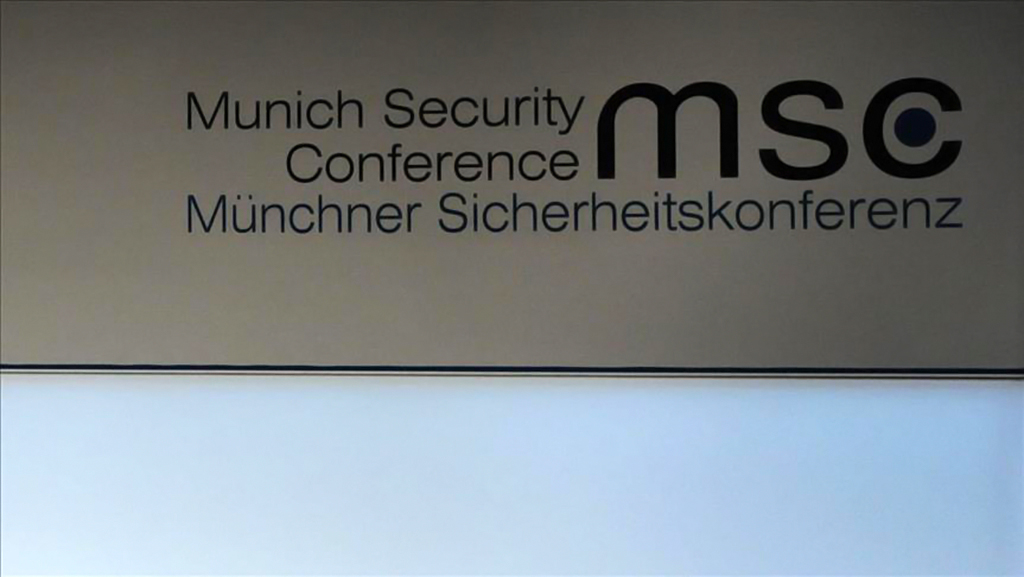Western otherization and Turkey's response
Turkey initiated a large-scale Westernization project immediately after the declaration of the Republic. It had decided to follow the footsteps of the enemy it had fought during World War I and the Independence War. It introduced many political, economic, even social and cultural reforms during the first two decades of the interwar period. In the wake of World War II, the Soviet threat further paved the way for Turkey's alliance with the West.
More


Who decides US strategy in Syria
Since the recent phone call between President Recep Tayyip Erdoğan and U.S. President Donald Trump last Sunday, we have seen that the major issue to debate has become the U.S. decision to withdraw from Syria. The intensity of objections to U.S. withdrawal from the area and the U.S. "green light" for Turkey's operation raised several questions about the arguments and rationale behind such criticism.
More
The primary purpose of the Turkish operation is to drive out terrorist groups threatening regional security and secure the area in line with international law
Turkey has been repeatedly emphasizing its determination to clear its border with Syria from terrorist elements. For this reason, Turkish officials have been trying to persuade their American counterparts to stop supporting the People's Protection Units (YPG)/Syrian Democratic Forces (SDF) and not to oppose its long-planned military operation.
In an interview with The Washington Post last week, Greek Prime Minister Kyriakos Mitsotakis said that if Turkish President Recep Tayyip Erdoğan "wants an honest conversation with the European Union, the best way would be to stop threatening to send hundreds of thousands of refugees to its shores." "We can have an honest discussion with President Erdoğan," he added. "He needs financial support."
There are three items on President Erdoğan's agenda: Turkey's request for support regarding the fate of Syrian refugees, Erdoğan's commitment to setting up a safe zone in northeastern Syria and his emphasis on injustices in the current world order. I believe that the Turkish president will touch upon those issues in his address to the U.N. General Assembly as well as bilateral meetings with U.S. President Donald Trump and Germany's Chancellor Angela Merkel. Erdoğan's recent remarks about nuclear weapons relate to the search for a new world order, as encapsulated by the maxim: "The world is bigger than five." After all, revealing one's intention to become a nuclear power makes little sense if one indeed means it.
With Bolton's departure, Trump seeks ways to deflect criticism
To save himself from more criticism over the increasing number of 'unappointed positions' in Washington, President Trump has been rushing to find a man for the foreign and national security desk since John Bolton's ‘sudden' departure
More


Peace corridor plan is a message to US
As expected, the National Security Council's most recent statement reiterated Turkey's commitment to combating terrorism. The communiqué made references to Turkish military operations in northern Iraq and the assassination of a Turkish diplomat in Erbil, criticized Interpol over the cancellation of arrest warrants for PKK leaders, urged NATO to act in line with the spirit of alliance and stressed Turkey's commitment to protecting its interests in the Eastern Mediterranean.
More
There is an ongoing debate on Syrian refugees in Istanbul, who are being asked to return to the provinces where they were registered. The media extensively covered complaints by Syrians about the 30-day grace period.
Last week, one of the most significant developments in regards to Turkish-American relations was the meeting of U.S. President Donald Trump with dozens of Republican senators. Reportedly, during the meeting President Trump tried to convince the senators in regards to the potential negative impacts of adopting sanctions against Turkey to the U.S. and its bilateral relations.
S-400s are not technical problem but political one, says expert
S-400s are not technical problem but political one, says expert
The NATO Council and Mediterranean Dialogue Partners Meeting took place in Ankara earlier this week, at a time when Turkey and the United States are experiencing tensions over the former's plan to purchase the S-400 missile defense system from Russia and disagreements on Turkish drilling in the Eastern Mediterranean.
North Macedonia’s accession to the Alliance does not give promising signs of rapprochement between Russia and NATO
The most recent regional crisis erupted in South Asia after the Indian Air Force crossed into Pakistani air space in order to hit Kashmiri armed groups. The story of the crisis goes back to the end of British colonialism in the subcontinent.
With the U.S. warning of its withdrawal from the Middle East, the new balance of power in the world has begun to be established. The rapprochement between authoritarian Arab regimes and Europe alongside Saudi Arabia's search for convergence with Asian powers are just the consequences of it
On the condition that both sides engage in sincere negotiations, Ankara-Washington relations can easily get back on track again in a very short period of time
The U.S. withdrawal from Syria is turning into a major debacle. Washington's superpower status enables it to exploit the disequilibrium in military might to invade other nations..
The Munich Security Conference is an influential platform where global security trends are discussed every year by academics and policymakers.
It was in October 2011 that then-U.S. Secretary of State Hillary Clinton wrote an op-ed in Foreign Policy Magazine describing the orientation of the new U.S. foreign policy..
Gulf states, which try to harm Turkey by sanctioning covert operations against it, must wake up to the looming threat of Iranian expansionism without further delay

















